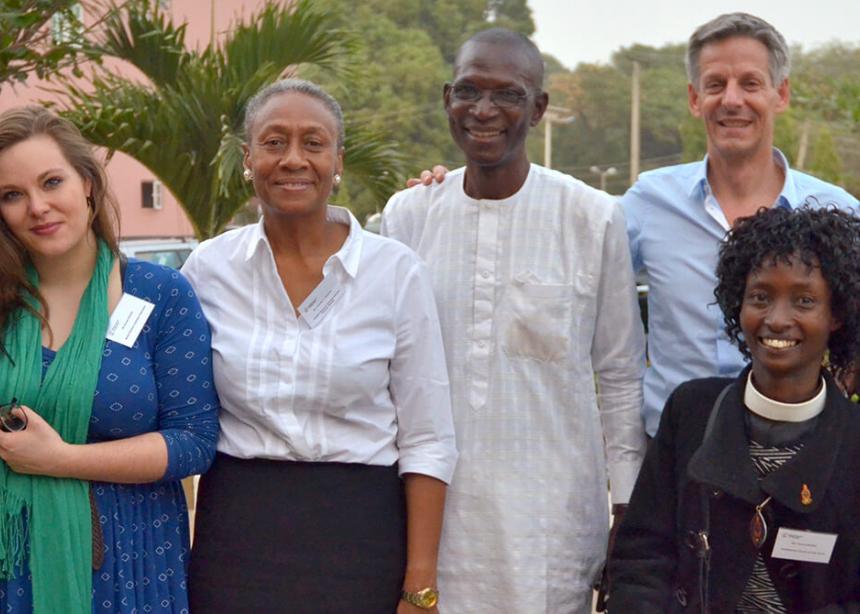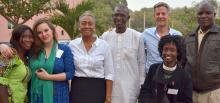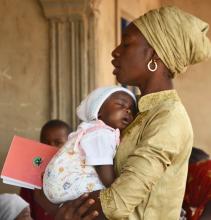For the last two years in February, I have been on a pilgrim journey to different regions of the world in need of peace and justice, and I will be doing the same for the next several years. This year, I made my way to the hot, complex and beautiful country of Nigeria.
These journeys are a part of the work I am pursuing with the World Council of Churches (WCC) program called the Pilgrimage of Justice and Peace. I serve on the reference group for this program as a representative of the World Student Christian Federation. Every year, we meet in a different region of the world and shape the focus of pilgrimage for the global constituency of the WCC.
To shape a pilgrimage for others, we ourselves must be shaped by the pilgrimage. It is why we journey from across the world to come together in places experiencing violence and injustice. This is how we can answer the call of Christ to, as the WCC’s website states, “lift the poor and the oppressed, and to turn away from those structures and habits that bring darkness rather than light.”
This pilgrimage is taken to invite “Christians and all persons of good will to join together in building justice and peace,” the website goes on to say, and is a way to create solidarity between churches across the world.
In Nigeria, pursuing justice and peace is complex. The realities of inter-religious conflict, with intersections of tribalism, extremism, violence, oppression of women, political corruption, poverty and environmental degradation, have had massive human impacts. Christians and Muslims have both experienced violence at the hands of the other. Churches have been burned, girls have been kidnapped and lives have been brutally lost.
Meeting this year with WCC staff and church leaders from around the world, we ventured to meet people and hear experiences from both Muslims and Christians in Nigeria, and to encounter their voices and hearts in these realities.
While I met many people and heard many stories, there are some that have stayed closer to my heart. One hot Sunday, I journeyed to visit my friend, Pastor Musa, and his congregation at First Baptist Church in Gbagyi Villa, Kaduna.
Pastor Musa shared earlier with me that in order to remain safe from surrounding violence in the north, his church members were forced to migrate south to Kaduna. As such, they needed to rebuild their church, which presented a challenge.
Less than 5 percent of his congregation is employed now, due to displacement. Additionally, there are many more women than men in the congregation, as many of the women are recent widows due to the violence. Despite the lack of resources available, this church is tenacious and was able to scrape together enough from their meagre resources to rebuild. However, shortly after rebuilding, torrential downpours destroyed the roof, and the church has again found itself in need.
While First Baptist’s current temporary structure may only be made of a thin wood frame and tin, it is undeniable that what exists within the congregation is an unbelievable resilience and capacity for joy. The leaders and congregants remain hopeful that this is a year of greatness and were very encouraged by the visit by the Pilgrimage of Justice and Peace.
As it should be with pilgrimages, I walk forward changed. Places and relational encounters have been integrated into my way of knowing and seeing. I have found that the deeper the connections and the more one takes a moment to listen deeply and commune with those encountered, the greater the impact the Pilgrimage of Justice and Peace has.
As I return home, I carry with me the pain and suffering of those I have met. Just as importantly, I walk forward knowing the ways hope and resilience are carried by those who faithfully know it much more deeply than I.
A deep solidarity is found in this type of transformational faith pilgrimage. I encourage anyone who has the opportunity: Make your own pilgrimage to visit churches in places where injustice rules. Go and meet the people and see their faith. Encourage them, seek justice and peace with them, and learn for yourself what it means to have faith that perseveres in hope and resilience when there are so many reasons not to.
Brandi Friesen attends Hope Mennonite Church in Winnipeg. She is a graduate student at the University of Manitoba and sits on the board of the World Student Christian Federation. Learn more about the Pilgrimage of Justice and Peace at wccpilgrimage.org/en.





Add new comment
Canadian Mennonite invites comments and encourages constructive discussion about our content. Actual full names (first and last) are required. Comments are moderated and may be edited. They will not appear online until approved and will be posted during business hours. Some comments may be reproduced in print.